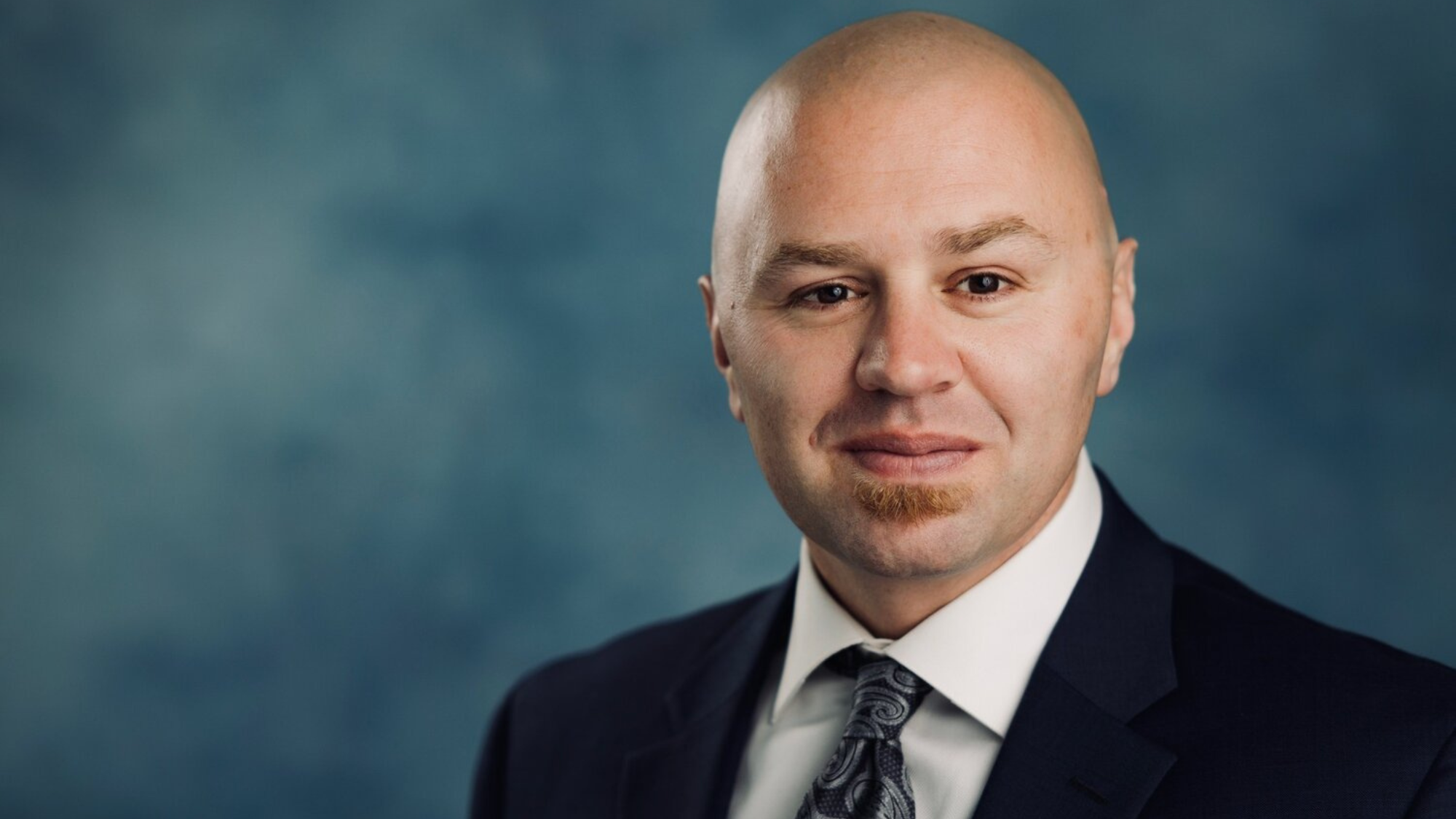
Wayne Fournier is a Thurston County commissioner, lifelong union member and former mayor of Tenino.
The Daily Chronicle
Posted Monday, September 29, 2025
By Thurston County Commissioner Wayne Fournier
I am a proud lifelong union member, raised in a family of union leaders. I’m an active member of IAFF Local 315, a former member of IAFF Local 2903, and a former member of WFSE. I’ve been in elected office for nearly 15 years, first as a City Councilmember, then as a mayor, and now as one of your Thurston County Commissioners. Along the way, I earned an advanced certificate in Municipal Leadership. My values are grounded in respect for working people and solidarity with organized labor, and those values are why I have always identified as a Democrat.
One of my favorite initiatives I’m working on right now (with my fellow commissioners) is ensuring community workforce agreements are included on every major capital project we take on as a county, so that local tax dollars employ and support local workers. That’s why I deeply respect the intent behind the Workers’ Bill of Rights (Proposition 1) and the people supporting it.
But as always, the devil is in the details.
Earlier this year, the City of Olympia funded a study to examine the potential impacts of this initiative. But once the signatures qualified it for the ballot, state law required the city to cancel that process, so the work was never done. Olympia is essentially flying blind, full speed ahead. From that point forward, strict Public Disclosure Commission (PDC) rules barred staff and councilmembers from producing any analysis that might be seen as “for” or “against.” In practice, that has silenced the very people we would normally rely on for answers. Many staff are even hesitant to respond to basic questions for fear of fines.
I write this with personal concern and at some risk: simply asking questions or speaking out in today’s political climate could make me a target, even get me doxxed or blacklisted by small but vocal circles in our community that are pushing hard for this to pass. There was even an overt attempt to deny residents their democratic right to vote, forcing this straight into law without public input, the very antithesis of democratic values. That fear has created a vacuum of honest discussion at the very moment Olympia needs it most.
Still, kicking in doors and running into burning buildings is the kind of adventure I live for, so here we go, these are some of the concerns we need to talk about and consider:
Childcare and employer thresholds
The ordinance classifies employers as “large,” “medium,” or “small” based on total employee count. For example, the YMCA, with more than 500 employees across its network, would be categorized as a large employer, even though local branches operate as nonprofits with limited margins. That designation triggers immediate, not phased-in, wage increases and rigid scheduling mandates.
For childcare providers like the YMCA, Boys & Girls Club, or YWCA, these changes mean higher operating costs passed directly to families. Families in Olympia already face some of the highest childcare costs in Washington. If this drives rates higher, many parents could be priced out entirely, destabilizing an already fragile childcare system. And because these nonprofits coordinate regionally, the cost increases won’t stop at Olympia’s borders, they’ll ripple across Lacey, Tumwater, and the entire county.
Economic data: What the experts say
According to a 2024 study by the Thurston Economic Development Council’s Center for Business Innovation, Olympia’s current minimum wage of $16.28 already equals 58% of the city’s median wage, one of the highest ratios in the nation. Economists call this the Kaitz Index, a measure of balance between wages and overall income.
The EDC warns that when a community’s minimum wage exceeds 60% of the median wage, it crosses into structural employment risk: job losses, reduced hours, and accelerated automation. A jump to $20/hour would push Olympia far beyond that threshold, placing it among the highest ratios globally.
Their findings show that such a steep increase would disproportionately impact retail, hospitality, food service, and nonprofits, sectors still struggling to recover from the pandemic. Teen workers, who make up 28% of all minimum-wage earners, would be the first to lose hours or jobs.
The EDC concludes that a balanced wage should stay between 50–60% of the median, which for Olympia equals about $16.80/hour, an amount that improves equity without destabilizing local employment. The report is clear: Olympia doesn’t have an income problem; it has a cost problem. Housing, childcare, energy, and food are too expensive for everyone, and raising wages beyond affordability won’t fix that.
Regional effects
If Olympia adopts rules that Lacey, Tumwater, and Thurston County don’t share, jobs and investment will move outside city limits. Neighboring jurisdictions are already preparing to welcome those businesses.
At a Chamber of Commerce seminar this summer, one of Olympia’s best-known restaurants said they had been preparing to buy a permanent location here once their lease expired. But with this measure looming, they told us bluntly: they’ve stopped the search and are now preparing to relocate to Lacey or Tumwater, cities with more stable, business-friendly environments.
When the rules change only inside Olympia’s borders, it creates a regional imbalance that punishes local employers and drains Olympia’s tax base.
Unequal application
In SeaTac, local labor laws were upheld in court, but only after a costly legal battle and a negotiated MOU with the Port, creating a patchwork of enforcement. Olympia could face the same issue.
This ordinance wouldn’t apply to state, federal, county, port, or tribal employees, or to businesses on those properties leasing from them. Cities cannot legislate “upward.” The legal principle of preemption establishes a hierarchy: federal and tribal governments at the top, then state, then county and port, and cities at the bottom with no authority to enforce above them.
That would matter most with the Port of Olympia and Squaxin Tribe, both of which own or lease commercial operations inside city limits. Here’s the real-world impact: when folks skip the “Olympia Burger” at Chelsea’s Oyster Bar or Bread Peddler for something cheaper on Port property, say, Anthony’s Homeport or the Olympia Farmers Market, those businesses wouldn’t be subject to the Workers’ Bill of Rights. Olympia doesn’t just lose the sale; it loses B&O tax, sales tax, and other revenue, worsening the city’s already serious budget deficit.
Scheduling rules
Predictive scheduling may sound worker-friendly, but for industries like healthcare, emergency services, or weather-dependent businesses, rigid rules can create chaos. Hospitals, utilities like LOTT, and first responders can’t always predict emergencies.
Years ago, when I owned a small pizza restaurant, I learned that workers often valued flexibility and shift-swapping over fixed schedules. Now imagine owning a car wash in Olympia, one sunny day, one rainy week. Under Prop 1, you’d have no ability to adjust staffing based on weather. Businesses like that could become untenable under these rules.
Job outsourcing
Sharp wage increases can push employers to outsource jobs, even overseas. Technology makes it easy, and Olympia’s ordinances stop at the city line.
This summer, two couples who own medical clinics shared their experiences with me. The local couple, who’ve always kept billing and reception in-house, said Prop 1 might force them to outsource overseas just to stay afloat. Their friends in Phoenix already did, hiring a firm in the Philippines that saved money and simplified operations. The advice from the Phoenix couple was blunt: “You’ll save more, just let your local staff go.”
That’s not economic justice. That’s job flight.
The benefits cliff
A single mother in Olympia recently told me her story. She works part-time, earns just under $20/hour, and qualifies for subsidized childcare, Apple Health, and SNAP benefits. If her wage rises by a few dollars, she could lose all three supports at once, paying $1,200 more for childcare, plus full healthcare and food costs. Her take-home pay might rise $200, but her monthly expenses could jump $1,500.
That’s not progress, it’s panic. Losing medical coverage, food assistance, or childcare because you earn a few dollars more is cruelty packaged as compassion.
Enforcement and courts
Prop 1 has no enforcement plan or budget. Once passed, City Council can never amend it. Any problem would require another costly election. Worse, Olympia contracts with Thurston County for court services. New civil actions could flood already overloaded dockets, force renegotiations and delaying justice for every city that relies on those courts; Lacey, Tumwater, Tenino, Rainier, and Bucoda included.
And because Prop 1 allows private right of action, employers could face lawsuits where they must prove their innocence, even without evidence, this flips due process, forcing employers to prove innocence rather than requiring evidence of wrongdoing. In Seattle, similar laws have led to multi-million-dollar settlements, draining money from wages, jobs, and local investment.
Looking beyond the headline
It’s easy to be drawn in by the name “Workers’ Bill of Rights.” But as history shows, nice-sounding names can mask harmful policies. The “Patriot Act” expanded government surveillance. “Right to Work” laws weakened unions. Olympia deserves more than slogans; we deserve truth and transparency.
I truly believe this initiative is well-intentioned, but it carries serious unintended consequences. We owe it to our community to ask tough questions before locking these rules into law.
What do you think? Do these concerns resonate with you? What impacts, positive or negative, do you see for workers, families, and businesses?
Let’s keep this conversation respectful (I haven’t yet lost hope that this is still possible), fact-based, and focused on what’s best for the region. I look forward to reading your comments.
Wayne Fournier is a Thurston County commissioner, lifelong union member and former mayor of Tenino.
Citation: Olympia Minimum Wage Increase Analysis – Thurston EDC

